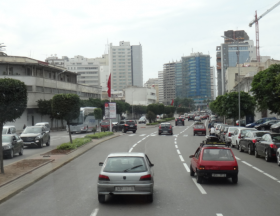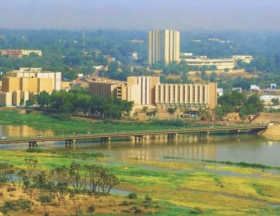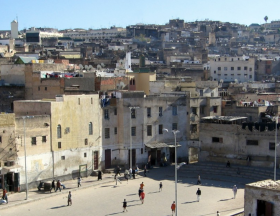In the fourth The Next Society / FEMISE Policy Brief, entitled "Morocco's No-Waste Strategy: A Potential for Green Entrepreneurs", Hajar Khamlichi, Mediterranean Youth Climate Network demonstrates that Morocco has great potential in climate entrepreneurship. Report.
Micro, small and medium enterprises (MSMEs) constitute about 95% of total enterprises in the South Med region and are considered the driving forces of economic growth, job creation and green and inclusive growth. Entrepreneurs, particularity start-ups, still face numerous challenges when it comes to establishing, promoting and running their businesses. Providing them with support through innovative initiatives and enhancing the ecosystem where they operate will contribute to their development. In their turn, entrepreneurs will contribute to achieving several of the Sustainable Development Goals (SDGs).
It is in this context that the Next Society (TNS) project and FEMISE decided to launch this initiative to produce “The Next Society Policy Briefs Series”. This series of briefs aims to better understand the challenges faced by entrepreneurs (through the lens of the entrepreneurs themselves) and to provide tailor-made operational policy recommendations. These briefs are based on collaborative work and exchange of knowledge and experience between the researcher(s)/author(s) and the entrepreneur(s), many of which have benefited from TNS project, ensuring their relevance and impact.
Morocco’s potential for climate entrepreneurship is high, and the country’s dynamic, high-growth entrepreneurs are helping to lead the country towards its green growth goals.
Morocco represents a breeding ground for green entrepreneurship
According to the World Bank survey, Morocco represents a breeding ground for green entrepreneurship with a growing number of green start-ups. By developing innovative business solutions to local climate challenges, green entrepreneurship will benefit not only Moroccans, but also neighbouring countries in the southern Mediterranean and Africa.
The Moroccan government has started to roll out several sustainability initiatives such as the National Roadmap for Biomass Energy Valorisation (BEV) to 2030, the National Energy Efficiency Strategy to 2030, the Green Hydrogen Roadmap, the Low Emission Development Strategy for 2050 (LEDS) and others. A new development model is also being developed.
However, many challenges related to sustainable development remain. One of them is waste management, which represents in Morocco (as in other developing countries) a major climatic, social and economic challenge with nearly 7 million tons of solid waste generated each year, with an increase of 3% per year.
The brief by FEMISE and The Next Society aims to address the green entrepreneurship ecosystem in Morocco by focusing on solid waste solutions, highlighting the opportunities and challenges of the waste management model and the government efforts that are in place. It will then analyse the potential of green entrepreneurship in Morocco through the success story of two start-ups that have established their projects in the field of waste management by finding green solutions to the challenges of their communities. Through a survey of these “green entrepreneurs”, they expressed the challenges they faced and how they overcame them.
Key recommendations include creating strong policies and supporting the green entrepreneurship ecosystem through the deployment of green job training programmes and the promotion of research, development and innovation initiatives through appropriate incentives, driven by academic, industrial and financial actors. This support would improve the environment for green entrepreneurs and unleash the full potential of Morocco’s green private sector development programme.
The fourth TNS/ FEMISE Policy Brief, entitled “Morocco’s “No-Waste” strategy: a potential for green entrepreneurs”, Hajar Khamlichi, Mediterranean Youth Climate Network, is available by clicking here










Réagissez à cet article